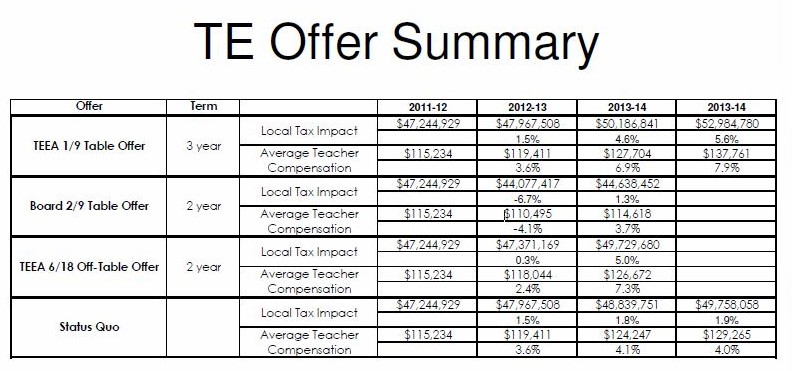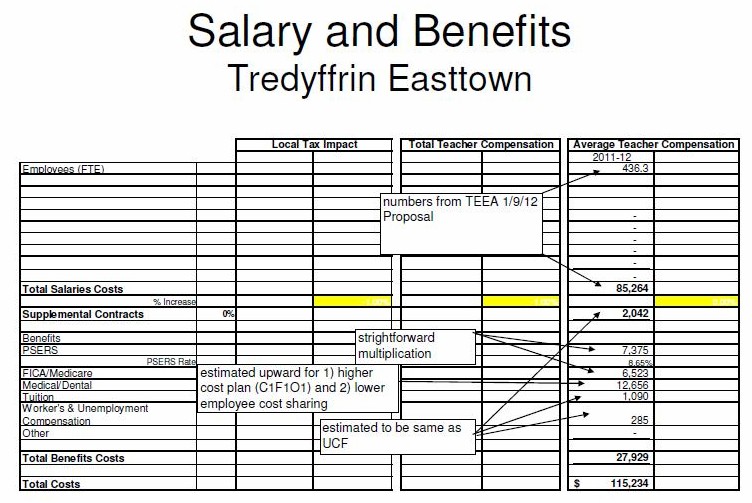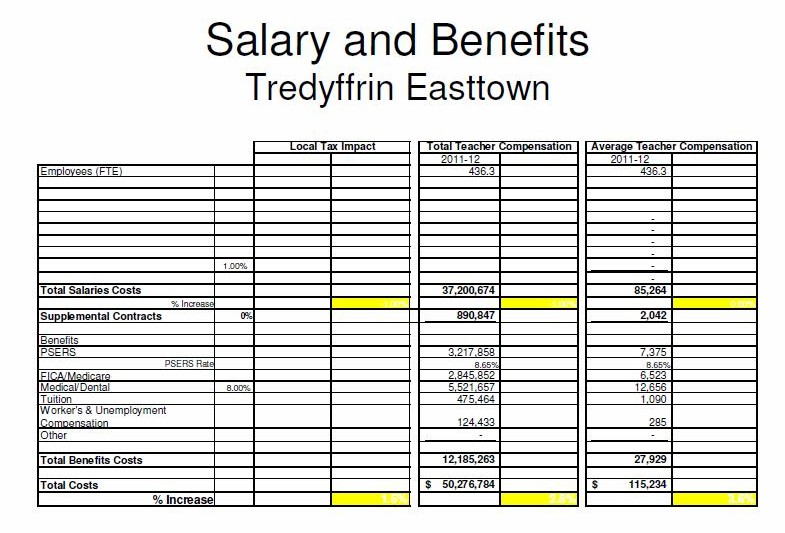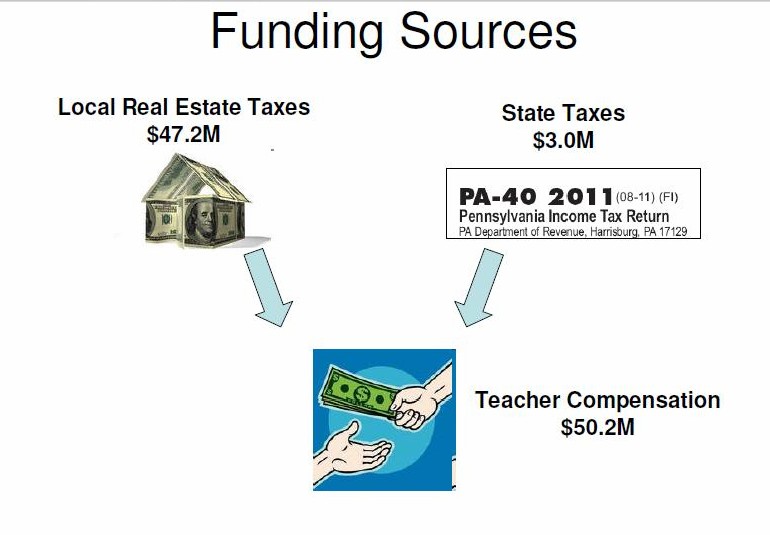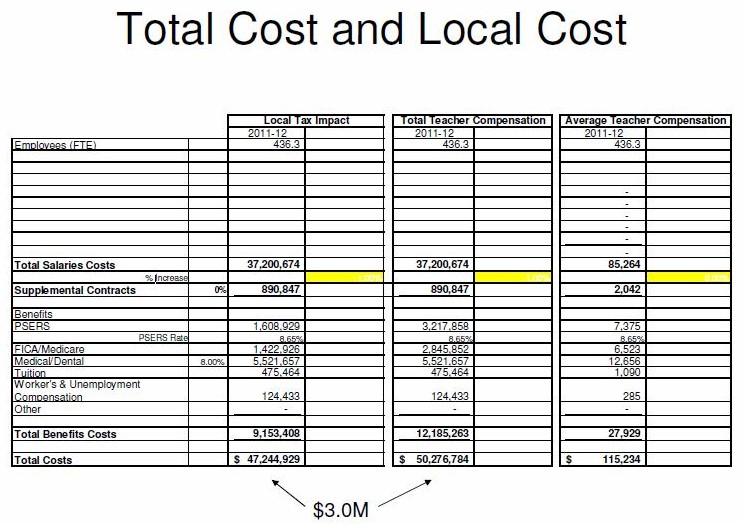Economic times and tight school budgets have school districts scrambling to find ways to cut costs, and the ‘outsourcing’ chopping block continues as a major target. Proclaiming cost-savings for cash strapped schools is the driver behind school district outsourcing decisions – and there appears to be an outside company available for virtually every classified service.
There’s nothing wrong with researching the outsourcing idea; otherwise how will the School Board know if they are getting the best services at the best prices. That said, I do object that the notification letter from the District was mailed to TENIG without any mention at a School Board meeting. It struck me odd that the president of the teachers union rather than the president of the School Board disclosed this information. Don’t misunderstand, I am grateful that TEEA president Laura Whittaker brought the public up to speed on the outsourcing process. But I don’t think it should be her job to keep ‘us’ in the loop. It’s important that the public be in the loop during the Board’s ‘discovery’ process as it relates to the outsourcing bids, but also to important that the Board list to resident input on the topic.
 The fact is that all the school districts are in a tough situation and that some form of outsourcing has become an avenue for some districts to save money. Over in Pennsbury School District, members of their support staff, PESPA (Pennsbury Educational Support Professional Association) have taken their cause to the community. With prominently displayed yellow lawn signs, PESPA are delivering strong words to their School Board, ‘STOP Pennsbury from Outsourcing’. Well-organized, the union is fighting back through a website dedicated to outsourcing, www.pennsburystudentcare.org which includes an online petition with over 1200 signatures.
The fact is that all the school districts are in a tough situation and that some form of outsourcing has become an avenue for some districts to save money. Over in Pennsbury School District, members of their support staff, PESPA (Pennsbury Educational Support Professional Association) have taken their cause to the community. With prominently displayed yellow lawn signs, PESPA are delivering strong words to their School Board, ‘STOP Pennsbury from Outsourcing’. Well-organized, the union is fighting back through a website dedicated to outsourcing, www.pennsburystudentcare.org which includes an online petition with over 1200 signatures.
According Bucks Local News, Pennsbury’s business manager Dan Rogers (equivalent to our Art McDonnell) is claiming that they could save about $21 million over the next 5 years by outsourcing custodial services, maintenance workers, paraprofessionals, IT support technicians and instructional aides. An additional $4 million could be added through the sale of buses and equipment. PESPA represents about 600 support staff members – they continue to work under the terms of their old contract, which expired in 2011. Fascinating to note that the chief negotiator for the Pennsbury school board is Jeffrey Sultanik (remember he was the negotiator for T/E School Board with our teachers union).
Sultanik is quoted at a School Board meeting saying, “ …the only way the Board would not consider subcontracting is if the union is willing to make significant salary and benefit concessions.”
Bucks County’s Quakertown School District support staff, Quakertown Education Support Professionals Association (QESPA) fighting back against the privatizing threat of 100 custodians and cafeteria workers. Armed with 1,500 signed petitions from community residents, QUESPA members want their Board to know that taxpayers do not the high quality of services provided to the children to be given away to an outside private company that will bring strangers into the schools. QUESPA’s current contract expires the end of June but Board is underway in their solicitation of proposals from private outside vendors – believing that it could help save money on food and retirement benefits.
In southern Chester County, the driving force behind Brandywine Heights Area School Board’s decision to authorize an RFP to outsource paraprofessionals is the Affordable Health Act that will take effect in 2014. Currently, in the Brandywine Heights district, the paraprofessionals work 6 days a week, 30 hours a week and are considered part-time. However, under the Affordable Health Act, all workers who work 30 hours or more are eligible for benefits.
Kennett Consolidated School District (KCSD) is slightly ahead of TESD in the process. Having already sent RFPs out for outsourcing custodial staff, they are now reviewing the bid received from Servicemaster, a worldwide provider of custodial services. According to data provided, outsourcing of custodial services would save KCSD approximately $400K in 2014, with higher projected savings in years ahead. KCSD is set to make a decision this month on privatizing custodial services and are planning a similar review of outsourcing proposals of instructional and teaching assistant staff in the next few months.
I thank Keith Knauss, School Board director for Unionville Chadds Ford School District (UCFSD) for supplying the following background information for discussion:
” … As background, in 2009-10 TE had 312 full-time support personnel and 78 part-time support personnel. That’s the most recent year available from PA Department of Education.
Those 312 full time support personnel are entitled to salary and benefits defined in the current TENIG contract.
http://www.tesd.net/cms/lib/PA01001259/Centricity/Domain/42/TENIG09july.pdf
Let’s examine the district’s cost to employ a hypothetical 10 month, 190 day, 8 hour per day, Clerk Typist for this year and next.
| 2012-13 | 2013-14 | |
| Salary | $31,981 | $33,410 | $21.04 to $21.98 per hr (4.5%) |
| FICA @7.62% | $1,218 | $1,273 | 7.62% half reimbursed by the state |
| PSERS | $1,976 | $2,835 | 12.36% to 16.97% half reimbursed by the state |
| Healthcare | $18,700 | $20,196 | est. family coverage, 8% inflation |
| Holidays, Sick Leave | $3,703 | $3,868 | 10 paid holidays, 10 sick days, 2 personal days |
| Total | $57,579 | $61,582 | |
| % incr | | 7.0% | |
There are two factors that might lead school directors to investigate outsourcing.
First, the cost increase from this year to next is estimated to be 7%. This a problem when the district’s revenue is constrained by the Act 1 Index that is estimated to be 2.2% next year.
Second, the cost of benefits is far higher than in the private sector. The PSERS retirement plan and associated cost has been under discussion several times in this blog. What hasn’t been discussed is the cost of healthcare. According to the Kaiser Foundation, the national average family plan costs $15,745. The employer pays $11,429, the employee pays $4,316. This is compared to TESD where the family plan is estimated to be $19,000. The TESD pays $18,700, the support staff employee pays $300. The district’s cost of healthcare for support employees is estimated to be $7,000 above the national average.
http://ehbs.kff.org/pdf/2012/8345.pdf
As always, I try to be thorough and accurate. I have purposely not advocated for any solution or made any determination as to what is fair. Constructive criticism is welcome….”
Thank you Keith for this information. Accepting that the District’s ‘hands are tied’ re PSERS costs (at least for the short-term), clearly the focus needs to be redirected towards healthcare costs, where the opportunity for change does exist. I have been vocal in my support of TENIG, but as was the case with the teacher contract negotiations, healthcare costs are negatively affecting the budget bottom line. The teachers provided healthcare concessions in their latest contract and I am hopeful that given the opportunity, the TENIG members may do likewise.

 The fact is that
The fact is that  Back on June 19, the contract negotiations between the T/E School District and the teachers union, Tredyffrin Easttown Education Association (TEEA) reached an impasse and both sides requested that the PA Labor Relations Board (PLRB) assign it to a ‘Fact Finder’. The neutral third-party was to review the proposals of TESD and TEEA and then make a recommendation.
Back on June 19, the contract negotiations between the T/E School District and the teachers union, Tredyffrin Easttown Education Association (TEEA) reached an impasse and both sides requested that the PA Labor Relations Board (PLRB) assign it to a ‘Fact Finder’. The neutral third-party was to review the proposals of TESD and TEEA and then make a recommendation.